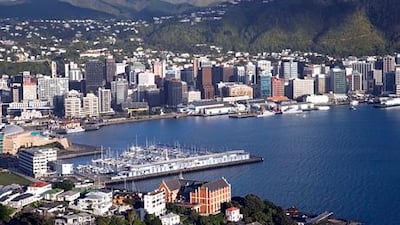A desire to be different has brought two nations 14,000 kilometres apart closer together as the gaze of Abu Dhabi's Economic Vision 2030 falls on New Zealand.
Vision 2030: More on Abu Dhabi Model Economies
Three days may do for Dubai – but not in New Zealand International travelers spend an average of more than three weeks when they visit New Zealand. But the country is now boosting efforts to increase how much those tourists spend. Read article
Abu Dhabi advised to build trust by adopting NZ's office of ombudsman In Abu Dhabi's efforts to be ranked among the world's top governments, officials have visited New Zealand for insights in key areas.. read article
Working hard off the rugby field, too New Zealand was selected as a model economy within Abu Dhabi's Economic Vision 2030, in part, for its success in developing a relatively large export base. read article
New Zealand shows starting a business can be pain free When Abu Dhabi looked for a model economy to inspire its growth of small and medium-sized business it chose New Zealand. Here is why. read article
"We were seen as very, very different economies," says Olga Speranskaya, the operations manager for investment at New Zealand Trade and Enterprise, a national economic development agency. But both economies have a common interest at heart. "In the end," says Ms Speranskaya, "Abu Dhabi is a country of oil and money. We're a country of milk and money. Diversification is key."
That common push to diversify has woven the two economies closer together. The UAE is now one of New Zealand's largest trading partners in the Middle East, with the value of exports from the island country having topped NZ$416 million (Dh1.27 billion) last year. Etihad Airways and Emirates Airline have become major sources of tourists bound for New Zealand.
Last year, a high-level delegation from the Abu Dhabi Accountability Authority met New Zealand's prime minister, John Key, to discuss the effects of the global financial downturn on their respective economies. And, in June, New Zealand's first embassy in the Emirates was opened in Abu Dhabi.
"Both New Zealand and UAE are countries of similar size with a strong interest in good governance and sustainable growth," says Malcolm Millar, New Zealand's ambassador to the Emirates.
For officials in Abu Dhabi, there has also been a keen interest in how New Zealand has become top-ranked in the world when it comes to making it easy for an entrepreneur to start a new venture. The country has created the right infrastructure overall "to encourage and promote awareness of innovation … especially on the small and medium-sized sector", says Mohamed Omar Abdullah, the Undersecretary for the Abu Dhabi Department of Economic Development.
"That was by itself a very good contribution of the strategy of New Zealand," says Mr Abdullah. "New Zealand has moved from the traditional economy to the knowledge-based economy. We, as Abu Dhabi, look at it from that direction."

